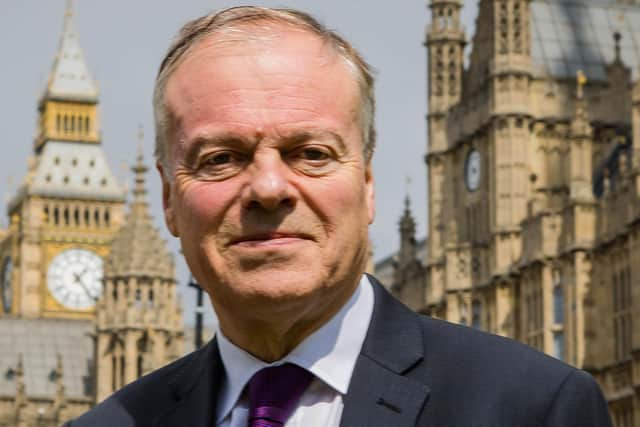Trust lost in Levelling Up following funding for wealthy areas, MPs warn
A report by Parliament’s Levelling Up Committee found that the management of funds used to level up the country led to “diminished perceptions of trust and transparency”, with councils and mayors asked to bid against each other for funding.
The committee said there is a perception that the Government’s approach showed a “distrust in devolution”, in addition to a failure by the Department for Levelling Up to ensure other government departments are enacting the policy.
Advertisement
Hide AdAdvertisement
Hide AdMPs described a lack of data available to the department as a “serious concern” as it lacks the information needed to make informed decisions over where to invest.


Earlier this year the second round of the Government’s flagship Levelling Up Fund, which approves new projects across the UK, with Yorkshire receiving the lowest share of money approved by Whitehall.
The committee said a lack of transparency on how money from the levelling-up fund was allocated has left DLUHC open to criticism over how bids received ministerial sign-off.
It highlighted the example of a district council in Rishi Sunak’s constituency of Richmond, which received £19 million in the second round of levelling-up funding despite having a high level of prosperity.
Advertisement
Hide AdAdvertisement
Hide AdThe committee also cited research which showed Dorset, which is perceived as less in need of funding, receiving “10 times more direct funding than what are ranked as poorer areas in the north such as Knowsley, Burnley and Salford”.
Clive Betts, Chair of the Levelling Up, Housing and Communities (LUHC) Committee, said: “There is cross-party consensus in tackling the regional and local inequalities that are holding back communities across the country.
“But the complexity of the levelling up challenges mean they cannot be remedied by the Government’s current approach of one-off short-term initiatives.
“The Government should heed the lessons of projects such as German reunification which were accompanied by long-term funding and internationally recognised for the benefits delivered in terms of long-term, substantive growth.
Advertisement
Hide AdAdvertisement
Hide Ad“The levelling up policy requires a long-term and substantive strategy and funding approach, elements this policy currently lacks. Without this shift, Levelling Up risks joining the short-term Government growth initiatives which came before it.
“The Department for Levelling Up, Housing and Communities (DLUHC) is primarily responsible for delivering levelling up but is currently failing to drive forward the policy across Government.”
DLUHC told the committee in June 2022 that “work was well under way” to identify the “totality” of levelling-up funding pots across Whitehall departments.
A DLUHC spokesperson said: “Levelling Up is a long-term programme of reform that sits at the heart of our ambition as a Government. It is breathing life into long overlooked communities, whether it is record investment in town centres and high streets or devolving more money and power out of Westminster to the regions.
Advertisement
Hide AdAdvertisement
Hide Ad“Almost £10 billion has been allocated from DLUHC since 2019 to support around 1,000 projects, in addition to the £7.5 billion commitment to the nine city-based Mayoral Combined Authorities in England.
“We are continuing to work towards simpler funding processes to support local authorities and are currently reflecting on the lessons learned from the first two rounds of the Levelling Up Fund allocations to inform the design of Round 3.”